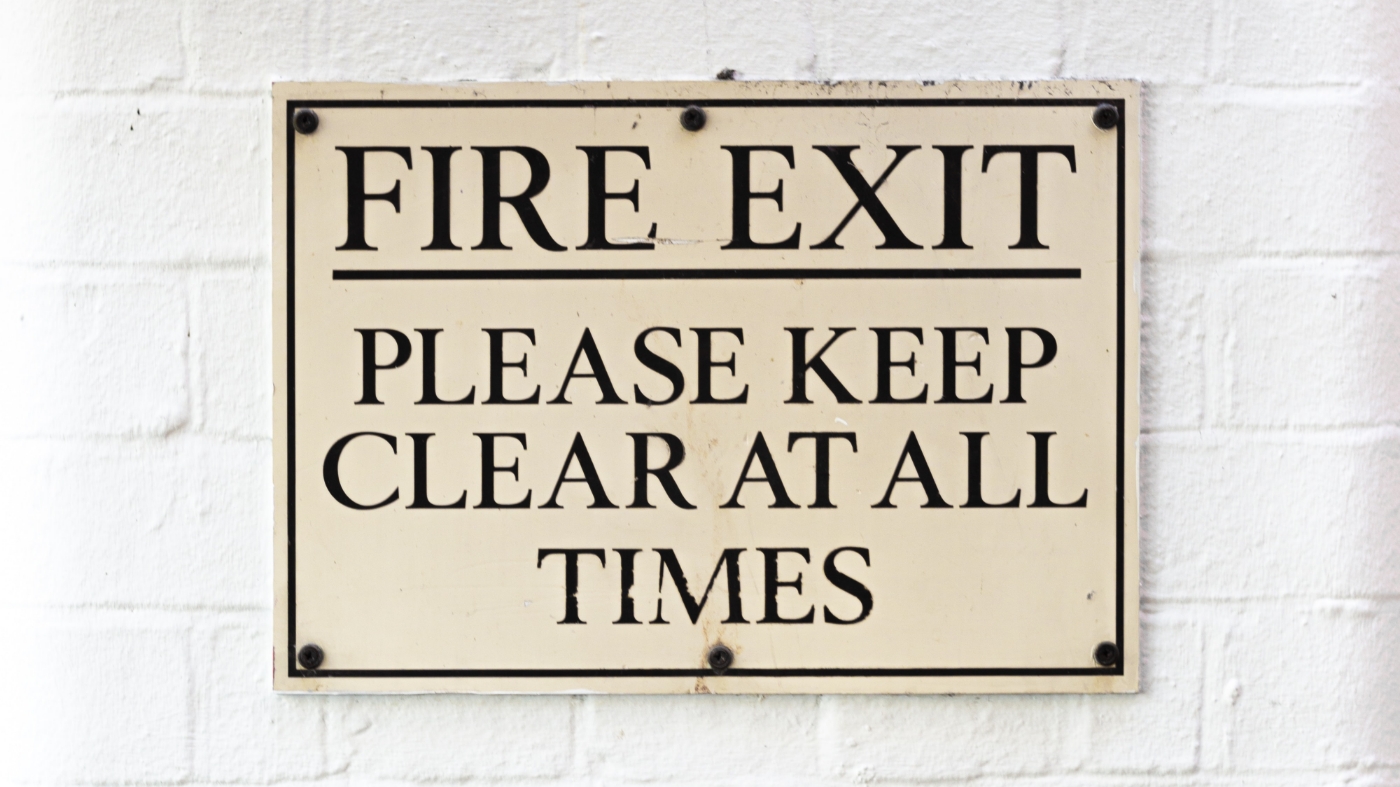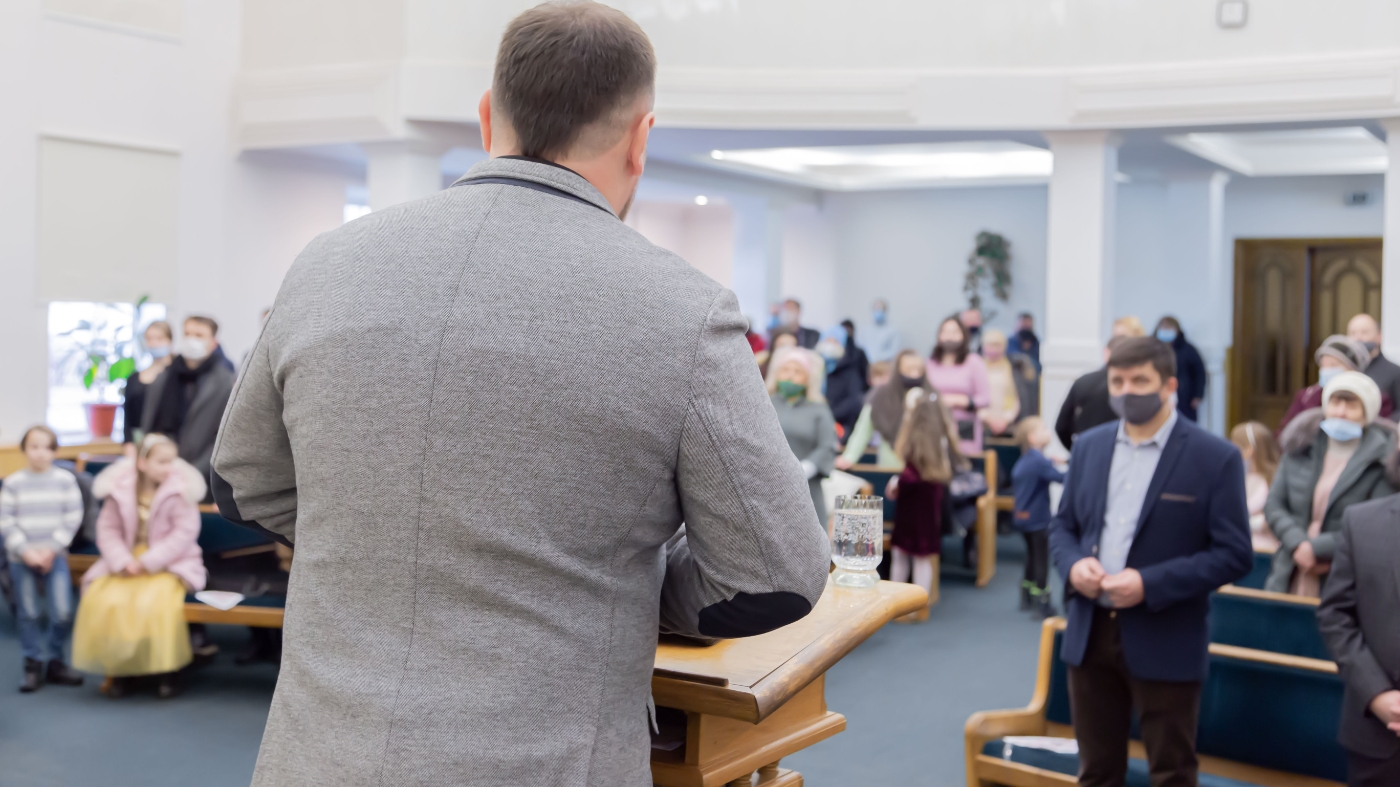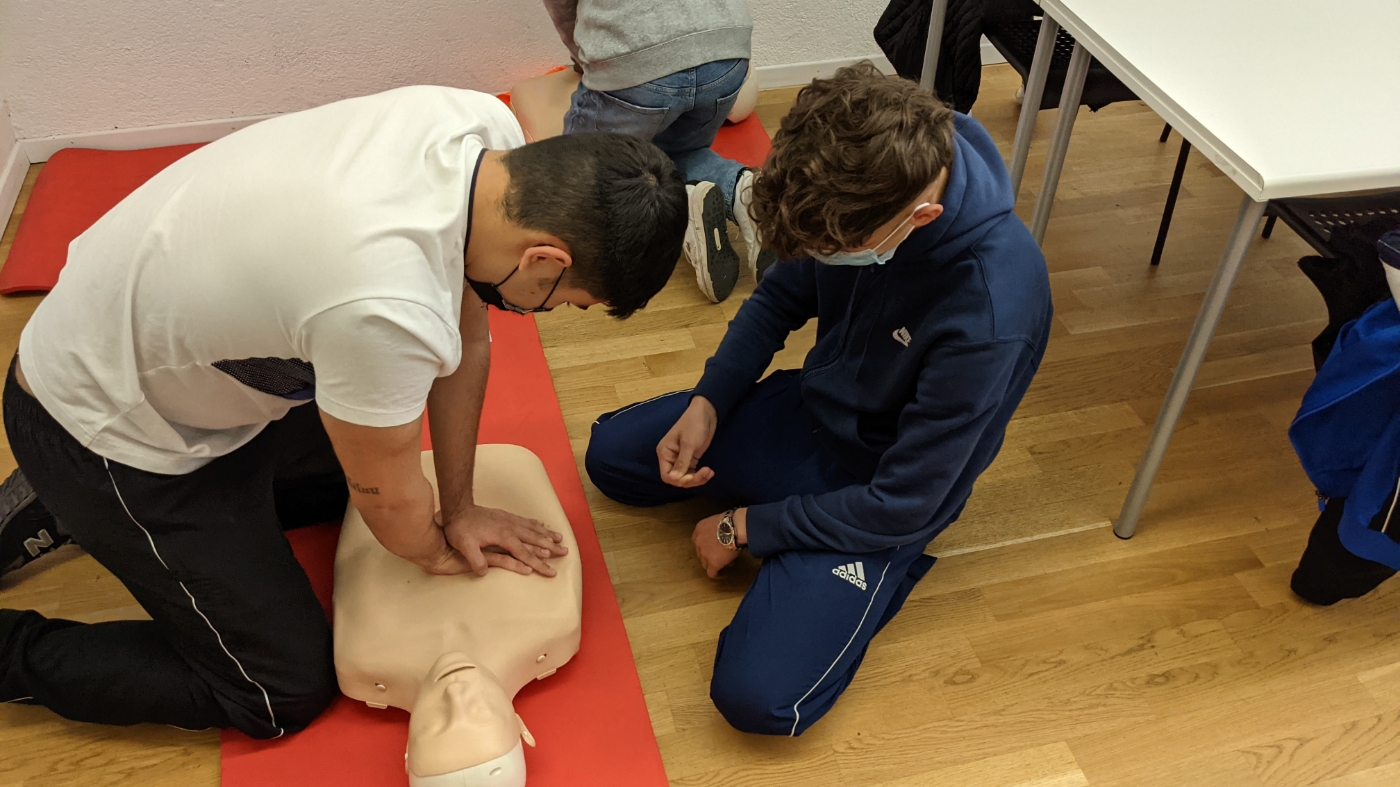9 Must-Dos When Creating a Safer Church
Security at church isn’t always a priority. Good people assume the best in others, which can put preparing for risks on the peripheries. But protecting your congregation when they come to worship is essential, so follow these church security tips to put your people first.
Clearly Mark Emergency Exits

It may sound commonsensical, but bold and bright emergency exit signs are essential. Implement a strict church security policy that ensures everyone keeps these essential exits clear at all times, with no exceptions.
Some churches have mainly long-term attendees, which can make leaders complacent when it comes to highlighting exits. Instill it in your pastor that they must regularly identify the emergency exits to the congregation, especially if newcomers are in attendance.
Keep an Eye on the Entrances

Don’t forget about the entrances or exits during the service. When people are preoccupied and focusing on their faith they are most vulnerable, and a dangerous person slipping through the doors could wreak havoc.
Station volunteers in the parking lot and by the doors during the service to ensure that your church remains safe. Make your life easier by choosing one entrance for everyone, so you have fewer doors to manage.
Research Potential Problem Areas

Take a look around your church building and try to conduct a safety assessment. Are there any potential problems you can imagine occurring? Think about sharp edges a child might bump into, stairs without a handrail, or old chairs that might break.
Spend some time researching these issues and thinking up effective solutions. If you want to be sure your safety assessment was thorough, invite emergency service workers into your ministry to share their (highly professional) two cents.
Assign Roles for Emergency Situations

Avoid a disastrous situation where everyone runs around like headless chickens by assigning emergency roles ahead of time. If people feel prepared, they will make calm decisions that are effective while offering reassurance to the people around them.
In case of a fire, who is the on-site fire marshal? Who is responsible for calling 911? Thinking of roles like these will take the mystery away in times of chaos, helping to de-escalate the situation as quickly and efficiently as possible.
Conduct Regular Safety Meetings

After assigning church workers roles, join them together as your church security team. Hold regular meetings to identify any potential threats, discuss the protocol, and remind them how vital their role is within your church.
Use this time to ask difficult “what if?” questions that will urge you towards a more streamlined emergency response. Threats to church security come in all shapes and sizes, and imagining the situation beforehand will keep your eyes open.
Identify Trained Professionals

Open the question to the floor and ask your congregation if anyone has any practical experience that could help. Individuals with medical experience, law enforcement officers, and anyone with a military or security background can share their skills if needed.
That way, you have people who can help if an aggressive person comes into your ministry or someone goes into sudden cardiac arrest. Keeping the situation under control until emergency services arrive is essential.
Equip Your Volunteers With Tools

Well-meaning volunteers can only do as much as their equipment will allow. Handy tools like two-way radios can keep workers connected even when cell phone service is spotty, and a whistle for parking attendants will let them flag an issue quickly.
Though relatively simple, these tools could make or break how effective a volunteer’s emergency response is. Additional tools like digital check-in systems for kids will make keeping track of students easier. This, in turn, will keep them safe.
Provide Training for Some Workers

In addition to physical tools, educational tools are also key. Identify workers or volunteers with the potential to step up to a church security role and provide them with the training needed to thrive in that position.
Create a church security ministry where people are offered relevant first aid training, child safeguarding information, and other opportunities to hone their leadership skills when needed. Check out this blog for tips on how to spot a leader.
Be Prepared for the Worst

Thinking positively is great, but thinking the worst can be pretty helpful too. This doesn’t mean you need to be consumed by paranoia or fear but look at every situation with open eyes. Have a church security plan for every possible situation, and you’ll handle it with grace.
Natural disasters can strike at any moment, but is your ministry prepared? Forbes highlights how preparation is the most important factor as far as safety is concerned. Churches are a haven for many, so aim to have ample equipment on hand to secure your location in case of emergency and share with the community beyond your church too.
Conclusion
Fine-tune your church security protocols to ensure your ministry is a safe place for everyone. Have a system to follow for every emergency, whether a natural disaster strikes, a dangerous person enters, or someone simply falls ill on site. Planning is all it takes to protect your community sufficiently.
Looking for church security plan examples? Check out these handy templates to get started on elevating your church security as soon as possible. Inside the four walls of your church, everyone should feel safe. Put your people first with safety policies, from your church workers and volunteers to young kids at Sunday school and regulars.



